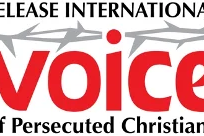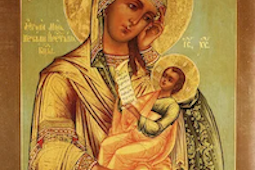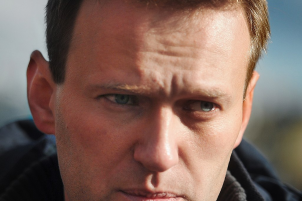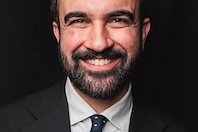Navalny, the Christian, in his own words
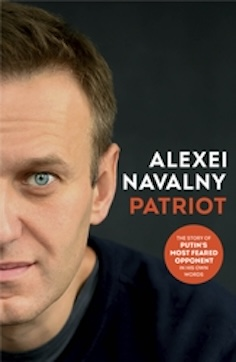
Alexei Navalny, who campaigned against corruption in Russia, was murdered a year ago in an Arctic prison camp. In all that has been written about his bravery, little is said about his Christian faith. Yet, as his posthumously published book makes clear, he was profoundly inspired by Christ's sacrifice, and he found great comfort in Christ's example as his prison conditions became more and more intolerable.
Raised in the USSR where religion was frowned upon, Navalny found faith when he saw his first-born child. At that moment, he wrote, he realised there was more than just evolution going on. He went on to put into action what he took from the teachings of Jesus, rather than the Putin-aligned Russian Orthodox church.
"Patriot" is part prison diary, part political manifesto and part autobiography. But it is also a love story about Navalny's rock solid partnership with his wife. His openness about his feelings for Yulia run counter to the traditional Russian image of manhood, personified by Vladimir Putin.
Navalny was a nerd who was uninterested by stripping off for the cameras to ride a horse or playing in hockey games in which professionals always allow Putin to score. Rather, Navalny was bookish, speaking several languages including human, which Russia's robotic president never mastered. Throughout the book, Navalny drops contemporary cultural references which would be a mystery to Putin, who can't use a computer and thinks the internet is a CIA plot. Navalny's humour and optimism are what make the book enjoyable as well as readable.
The lies perpetuated by the Soviet authorities about Chernobyl awakened the young Navalny to the corrupt and dishonest nature of the USSR. As he writes, nothing has changed since then: thieves and crooks control everything.
"How come in Russia almost all the young democrats, reformers and free market champions of the 1990s have become fabulously rich while changing their spots to become conservative pillars of the state? After all, nothing of that sort happened in Estonia, Hungary, Slovakia or Germany?"
Yeltsin was always part of the system, he says, so it was unsurprising to find his family has a $15 million home in the Caribbean. Navalny claims only Boris Nemtsov (murdered) and Yegor Gaidar were genuine reformers. The rest were opportunists who quickly dropped their idealism to cash in on the Putin kleptocracy. The narcotics police control Russia's drug trade, and state prosecutors are themselves criminals.
If this sounds familiar, there is plenty that is enlightening: most of the prison guards were polite to him and no one attacked him; prison authorities dutifully delivered his fan mail and thousands of Russians wrote to him; thousands more protested - contrary to the current impression of a frightened, supine population.
He claims everyone (including him) bribes university teachers to give them good grades; and a third of deaths in Russia are attributable to alcohol. Gorbachev's reforms - which Navalny calls half hearted - faltered because he stopped people consuming alcohol at weddings and celebrations, so everyone brought tea pots filled with vodka. The prime minister, Dmitry Medvedev, owns Italian vineyards; Putin's people would threaten venue owners, making it impossible for Navalny to hold indoor events, so he would improvise, standing on cars in freezing weather to address crowds.
The only false note is when Navalny tries to whitewash his brief flirtation with the anti-Semitic nationalists, Russian March. Otherwise, the book is a fascinating picture of a country whose leaders have never trusted their people with the truth, fearing anarchy will result, and blaming outsiders when Russians dare to think for themselves. One is left wondering why Putin goes to the bother of pretending to have elections or the rule of law.
"Russians yearn for a normal life, fully aware that we have invented all our existing problems for ourselves. We cannot admit to being fools, though, so we look for something to boast about, where in fact there is nothing to be proud of," Navalny concludes.
He insisted on returning from Germany after Putin's agents failed to poison him, because he felt he only had credibility as a politician if he was present. Russia has lost an incredibly brave and charismatic leader.
'Patriot' by Alexei Navalny, Bodley Head, £25.



